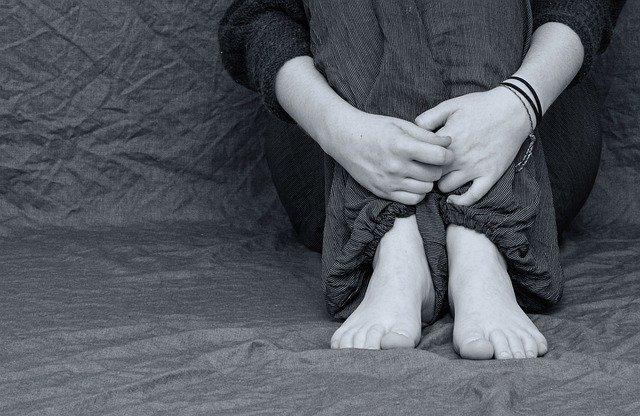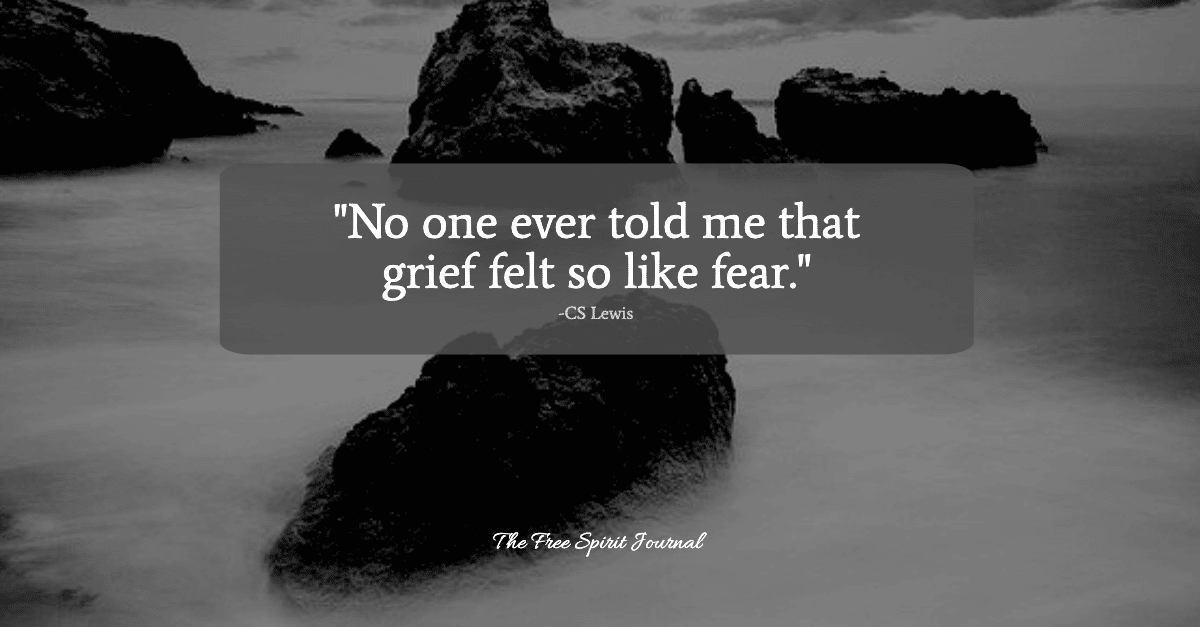“No one ever told me that grief felt so like fear. I am not afraid, but the sensation is like being afraid. The same fluttering in the stomach, the same restlessness, the yawning. I keep on swallowing.
At other times it feels like being mildly drunk,or concussed. There is a sort of invisible blanket between the world and me. I find it hard to take in what anyone says. Or perhaps, hard to want to take it in. It is so uninteresting. Yet I want the others to be about me. I dread the moments when the house is empty. If only they would talk to one another and not to me.” C S Lewis
Grief: The Other Side of Fear
No one tells you that grief and fear are two sides of the same coin. They both come with their own form of physical sensations, mental anguish, and social awkwardness. And yet, we go through both at some point in our lives.
In times of grief, it can feel like the whole world is against us. We are left feeling isolated and alone. It’s important to remember that you are not alone in your grief. Here, we will explore what it feels like to grieve and offer some ways to help you through this difficult time.
When we experience loss, it can be incredibly overwhelming.
Grief is a natural response to any type of loss. We may grieve the loss of a loved one, the loss of a job, or even the loss of a pet. Grief is a heart-wrenching emotion that can leave us feeling scared, confused, and alone.
One of the most difficult things about grieving is that it can feel so similar to fear. C S Lewis says, “No one ever told me that grief felt so like fear.” And he’s right. When we’re grieving, we may experience many of the same physical symptoms as we do when we’re afraid. We may feel nauseous, have difficulty breathing, or feel as though there’s a lump in our throat. We may also feel restless and have trouble sleeping. All of these physical symptoms can be incredibly frustrating and make it difficult to cope with our grief.

In addition to these physical symptoms, grief often causes people to withdraw from social interaction and can be difficult to talk about. However, it’s important to understand that grief is a normal response to loss and that there is no right or wrong way to grieve. If you are struggling with grief, know that you are not alone and that there are resources available to help you through this difficult time.
The 5 Stages of Grief
While everyone experiences grief in their own way, there are typically five stages that people go through denial, anger, bargaining, depression, and acceptance.
Denial
Denial is the first stage of grief. It is characterized by feelings of shock and disbelief. This is a defence mechanism that our brain uses to protect us from the pain of loss. It is our way of coping with sudden change.
Anger
Anger is the second stage of grief. This is when we start to realize what we have lost and begin to feel angry about it. We might lash out at others or blame them for our pain. It is important to express these feelings in a healthy way so that they do not become toxic.
Bargaining
The third stage of grief is bargaining. This is when we try to make deals with ourselves or with a higher power in order to get back what we have lost. We might say things like “if only I had done X” or “I will do X if you give me X back.”
Depression
Depression is the fourth stage of grief. This is when we start to come to terms with our loss and realize that we cannot change what has happened. We might feel hopeless and helpless during this time. It is important to seek professional help if these feelings last for more than a few weeks because they can lead to suicidal thoughts.
Acceptance
The fifth and final stage of grief is acceptance. This does not mean that we are okay with what has happened or that we have forgotten about our loss. Rather, it means that we have come to terms with it and are able to move on with our lives.
Grieving is a process that everyone goes through at some point in their lives. While it can be painful, it is also natural and normal. By understanding these stages, you can better prepare yourself for the grieving process and know what to expect.

